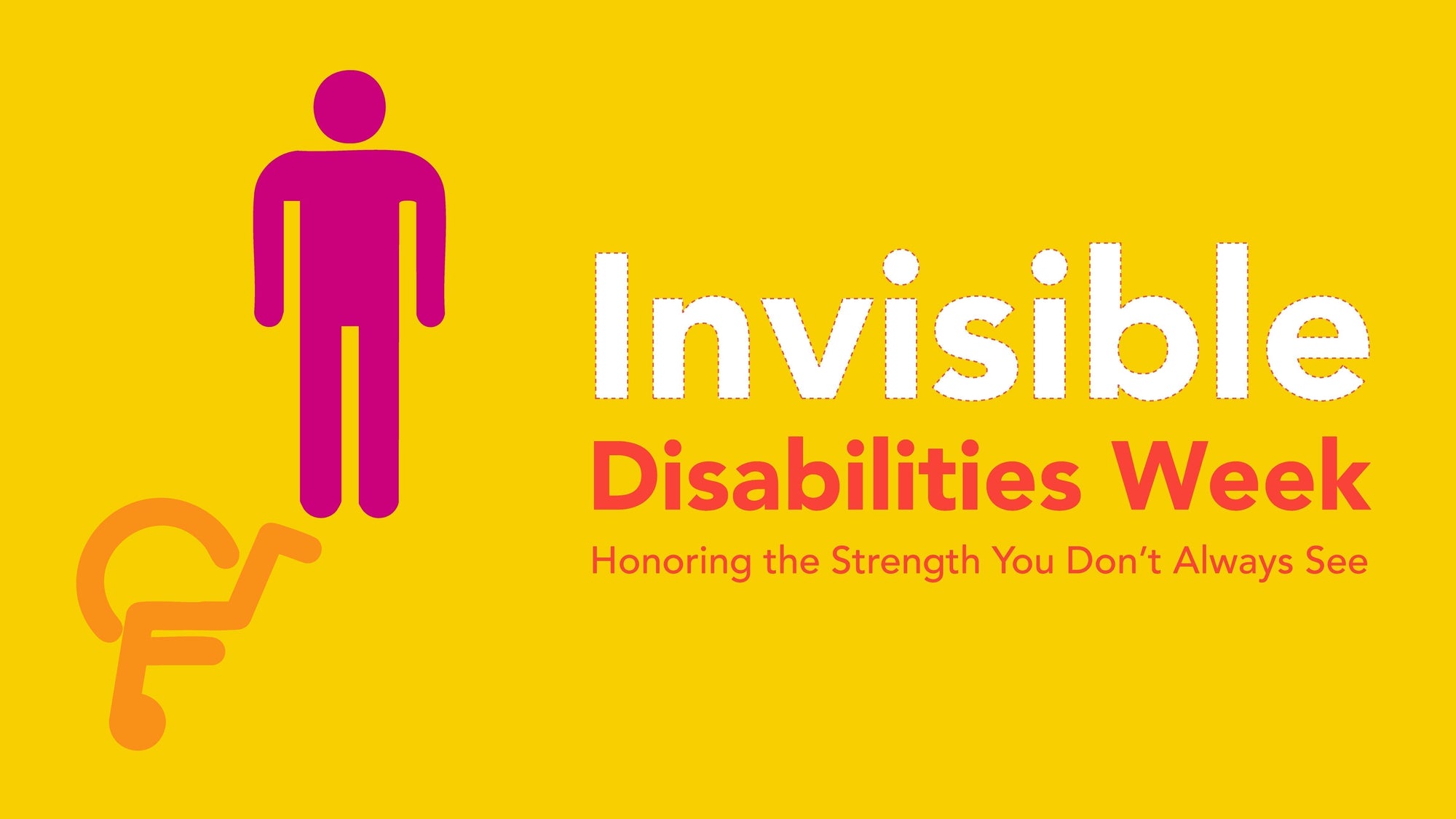When people think about disabilities, they often picture visible conditions such as using a wheelchair, wearing a prosthetic, or walking with a cane. But many disabilities can’t be seen at all—and that’s what Invisible Disabilities Week (October 19–25, 2025) is all about.

What Are Invisible Disabilities?
Invisible disabilities are conditions that affect a person’s daily life but aren’t immediately noticeable to others. These can include:
Chronic illnesses like lupus, Crohn’s disease, fibromyalgia, or diabetes
Neurological conditions such as epilepsy, migraines, or multiple sclerosis
Mental health conditions like depression, anxiety, or PTSD
Sensory and cognitive differences including autism spectrum disorder, ADHD, or auditory processing disorder
Because these conditions often lack obvious physical markers, people living with them may face unique challenges—like being misunderstood, doubted, or judged when they ask for accommodations or support.

Why Awareness Matters
Invisible disabilities affect millions of people worldwide. Yet because they aren’t always outwardly visible, they’re sometimes dismissed or minimized. This lack of awareness can lead to stigma, isolation, and barriers to accessibility. Recognizing Invisible Disabilities Week is a reminder that not all struggles can be seen—and that empathy should always come first.
How to Support Someone with an Invisible Disability
The best way to honor Invisible Disabilities Week is by practicing understanding and respect. Here are a few simple ways to show support:
Believe people when they share their needs. Trust that they know their bodies and experiences best.
Avoid assumptions. Someone who looks “fine” may still be in pain or facing limitations.
Offer flexibility. Be mindful that medical appointments, energy levels, and treatments may affect plans.
Listen first. Sometimes, what people need most is to be heard and acknowledged.
Honoring Strength You Don’t Always See

Invisible disabilities may not be visible, but the resilience it takes to manage them every day is extraordinary. By learning more, showing compassion, and advocating for accessibility, we can build a world that supports every kind of strength—seen or unseen.



